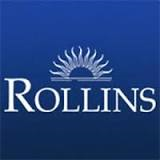What do they do?
Analyze product delivery or supply chain processes to identify or recommend changes. May manage route activity including invoicing, electronic bills, and shipment tracing.
Also known as:
Global Logistics Analyst, Logistics Analyst, Logistics Management Analyst, Material Supply Planner, Supply Chain Analyst, Transportation Analyst
-
28.3%
Change
Ranks #37 in job growth rate920Job Openings
Ranks #10 in net job growth
-
University of Scranton
Scranton, PA
-
Rollins College
Winter Park, FL
-
Saint Ambrose University
Davenport, IA
-
Jacksonville University
Jacksonville, FL
-
Liberty University
Lynchburg, VA
Looking for colleges that offer a specific major? Use the College Match Tool to find your best-matched schools and discover your estimated Net Price!
- Doctorate or Professional Degree (1%)
- Master's degree (11%)
- Bachelor's degree (35%)
- Associate's degree (12%)
- Some college, no degree (24%)
- High school diploma equivalent (16%)
- Less than high school diploma (3%)
Most Popular Majors that prepare Logistics Analysts
-
#1
-
Degrees Granted
1,944
-
Female Students
878
-
Male Students
1,066
-
Median Starting Salary
$39,500
-
-
#2
-
Degrees Granted
3
-
Female Students
2
-
Male Students
1
-
Median Starting Salary
$39,500
-
-
#3
-
Degrees Granted
1
-
Female Students
0
-
Male Students
1
-
Median Starting Salary
$39,500
-
People in this career often have these skills:
- Reading Comprehension - Understanding written sentences and paragraphs in work-related documents.
- Critical Thinking - Using logic and reasoning to identify the strengths and weaknesses of alternative solutions, conclusions, or approaches to problems.
- Active Listening - Giving full attention to what other people are saying, taking time to understand the points being made, asking questions as appropriate, and not interrupting at inappropriate times.
- Complex Problem Solving - Identifying complex problems and reviewing related information to develop and evaluate options and implement solutions.
- Speaking - Talking to others to convey information effectively.
- Monitoring - Monitoring/Assessing performance of yourself, other individuals, or organizations to make improvements or take corrective action.
- Systems Analysis - Determining how a system should work and how changes in conditions, operations, and the environment will affect outcomes.
- Systems Evaluation - Identifying measures or indicators of system performance and the actions needed to improve or correct performance, relative to the goals of the system.
- Judgment and Decision Making - Considering the relative costs and benefits of potential actions to choose the most appropriate one.
- Writing - Communicating effectively in writing as appropriate for the needs of the audience.
People in this career often know a lot about:
- English Language - Knowledge of the structure and content of the English language including the meaning and spelling of words, rules of composition, and grammar.
- Computers and Electronics - Knowledge of circuit boards, processors, chips, electronic equipment, and computer hardware and software, including applications and programming.
- Transportation - Knowledge of principles and methods for moving people or goods by air, rail, sea, or road, including the relative costs and benefits.
- Mathematics - Knowledge of arithmetic, algebra, geometry, calculus, statistics, and their applications.
- Administration and Management - Knowledge of business and management principles involved in strategic planning, resource allocation, human resources modeling, leadership technique, production methods, and coordination of people and resources.
- Customer and Personal Service - Knowledge of principles and processes for providing customer and personal services. This includes customer needs assessment, meeting quality standards for services, and evaluation of customer satisfaction.
People in this career often have talent in:
- Oral Comprehension - The ability to listen to and understand information and ideas presented through spoken words and sentences.
- Oral Expression - The ability to communicate information and ideas in speaking so others will understand.
- Written Comprehension - The ability to read and understand information and ideas presented in writing.
- Near Vision - The ability to see details at close range (within a few feet of the observer).
- Deductive Reasoning - The ability to apply general rules to specific problems to produce answers that make sense.
- Inductive Reasoning - The ability to combine pieces of information to form general rules or conclusions (includes finding a relationship among seemingly unrelated events).
- Information Ordering - The ability to arrange things or actions in a certain order or pattern according to a specific rule or set of rules (e.g., patterns of numbers, letters, words, pictures, mathematical operations).
- Speech Recognition - The ability to identify and understand the speech of another person.
- Problem Sensitivity - The ability to tell when something is wrong or is likely to go wrong. It does not involve solving the problem, only recognizing that there is a problem.
- Mathematical Reasoning - The ability to choose the right mathematical methods or formulas to solve a problem.
- Speech Clarity - The ability to speak clearly so others can understand you.
People in this career often do these activities:
- Maintain data in information systems or databases.
- Monitor inventories of products or materials.
- Monitor organizational processes.
- Evaluate logistics methods to reduce environmental impact.
- Analyze logistics processes.
- Advise others on logistics topics.
- Obtain information about goods or services.
- Prepare operational reports.
- Coordinate logistics or other business operations.
- Discuss business strategies, practices, or policies with managers.
- Develop business or financial information systems.
- Calculate data to inform organizational operations.
- Identify opportunities to improve operational efficiency.
- Apply mathematical models of financial or business conditions.
- Develop financial analysis methods.
- Analyze industry trends.
- Establish organizational guidelines or policies.
- Prepare financial documents.
- Calculate specific material, equipment, or labor requirements for production.
- Execute sales or other financial transactions.
This page includes data from:

 Occupation statistics: USDOL U.S. Bureau of Labor Statistics Occupational Employment Statistics
Occupation statistics: USDOL U.S. Bureau of Labor Statistics Occupational Employment Statistics
 Videos: CareerOneStop, USDOL/ETA and the Minnesota Department of Employment & Economic Development
Videos: CareerOneStop, USDOL/ETA and the Minnesota Department of Employment & Economic Development









